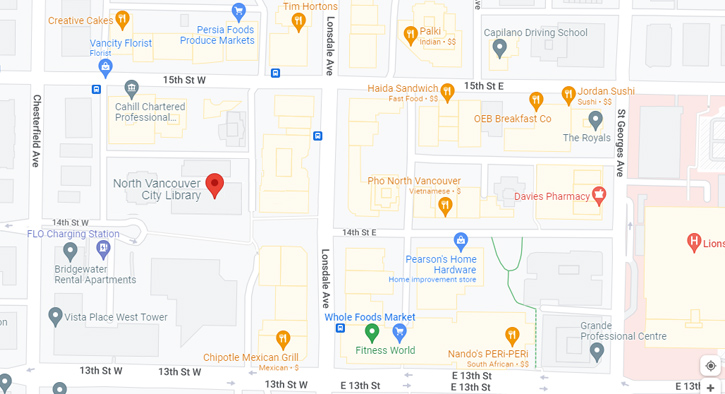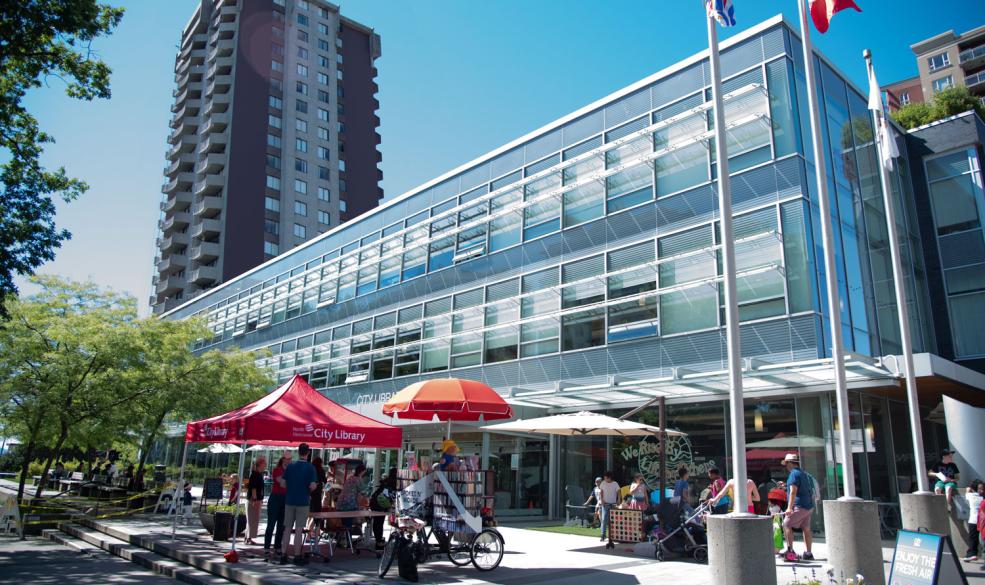LAST UPDATED: Monday, Aug. 11, 12:02 p.m.
An Environment Canada Heat Warning is currently in effect for North Vancouver. City Library is open during regular hours to provide a cooling space for people to gather.
View a map of North Shore cooling and misting stations.
Extreme heat affects everyone
Extreme heat events (or heat waves) are higher-than-average temperatures typically experienced between May to September. Heat affects everyone, but the risks are greater for seniors, people who live alone, people with pre-existing health conditions such as diabetes, heart disease or respiratory disease, and other groups, including people with mental illness or limited mobility.
For additional information on heat warnings and emergencies, visit North Shore Emergency Management's guide to extreme heat.
Keep yourself safe during extreme heat events
Follow these tips from North Shore Emergency Management (NSEM) to help prepare for and endure extreme heat events:
Keep cool and hydrated
- Drink plenty of cool fluids, especially water (avoid sugary, caffeinated, or alcoholic drinks)
- Take cool baths or showers to bring your body temperature down
- Wet your clothing during the day, or sheets at night
- If you don't have air conditioning, go to a local library, community centre or mall
- Check twice a day on friends and family members who are elderly or have special needs
At home
- Monitor indoor temperatures: heat risks increase at 26°C, and significantly increase at 31°C; consider staying with family or friends if you are in an 'at risk' group and live in a building where inside temperatures might be above 31°C
- Cover windows that receive morning or afternoon sun with drapes, shades, or awnings
- Sleep in your home's coolest location (usually the lowest part)
- Wear loose natural fibre clothing that breathes well
- Limit stove or oven use
Away from home
- Spend time in shaded and breezy outdoor spaces
- Stay in climate-controlled buildings as long as possible
- Wear a wide-brimmed hat, sunglasses and sunscreen (SPF 15 or higher)
- Wear lightweight, loose-fitting, light-coloured clothing
- Reduce, eliminate, or reschedule strenuous activities to the coolest time of the day
- If working outside, monitor coworkers and have them do the same for you
Stay connected
- Live alone? Find an extreme-heat buddy; check in on each other a few times a day
- Do you have vulnerable family members in a higher-risk group? Check in, ideally in person
- Be a good neighbour; check in on friends and neighbours
- Got air conditioning? Share it!
Caring for pets
- Never leave pets in parked cars during hot temperatures
- Bring pets inside during the hottest time of the day
- Provide plenty of fresh water and shade for outdoor pets

